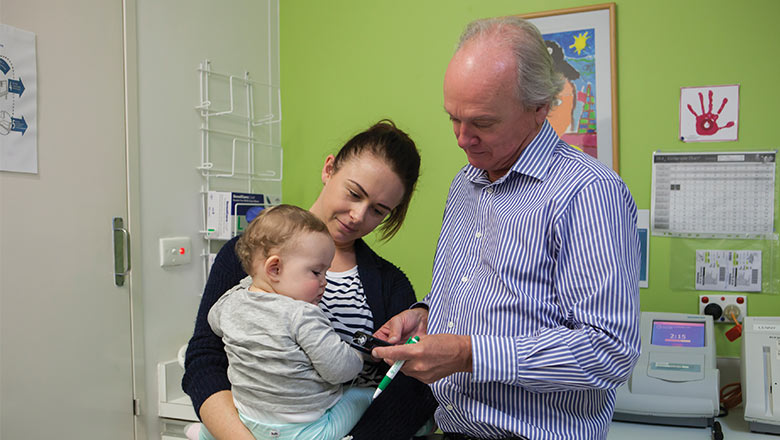Search
Research
How do high protein and/or high fat meals affect postprandial glycaemic control in children using intensive insulin therapy?Investigating the effect of fat and protein content of a standardised carbohydrate meal on the post-prandial glycaemic response in children with type 1 diabetes
Research
TrialNet: Pathway to PreventionThis study is helping us to learn how type 1 diabetes develop and ways to delay and prevent it.
Research
Investigating mortality rates and the incidence and risk factors of diabetes complications and co-morbidities during early adult life in a population based childhood onset diabetes cohortUsing the WA Data Linkage System to provide information of the incidence and relative risk of T1D co-morbidities and mortality during early adulthood.

News & Events
'Artificial pancreas' helps ease diabetes burdenThe Centre is currently involved in an international effort to develop revolutionary closed- loop 'artificial pancreas' technology. It is also leading a multi-centre Australian trial of these portable devices at home in young people with diabetes.

News & Events
What life is like living with type 1 diabetesEvery decision a child with type 1 diabetes makes can impact on their blood glucose levels.

News & Events
The hidden burden of diabetesWhen Jodie and Brad Scott welcomed their fourth child Heath into the world, they were prepared for the many sleepless nights that come with caring for newborns.

News & Events
Improving the lives of kids with Type 1 DiabetesDiabetes research got a huge boost when the WA Children’s Diabetes Research and Education Centre for Research Excellence opened late last year.

News & Events
Major focus for children’s diabetes research in WALaunch of the WA Children's Diabetes Research and Education Centre for Research Excellence (CRE) on the eve of World Diabetes Day.
News & Events
Environmental factors could trigger rise in type 1 diabetesNew research from Perth's Telethon Institute for Child Health Research has revealed an unexpected pattern in the rate and incidence of type 1 diabetes
Research
The effect of oral insulin on subcutaneous insulin requirements and glycaemia in T1DMLiz Tim Davis Jones MBBS FRACP PhD MBBS DCH FRACP MD Co-director of Children’s Diabetes Centre Co-head, Diabetes and Obesity Research Co-director of
